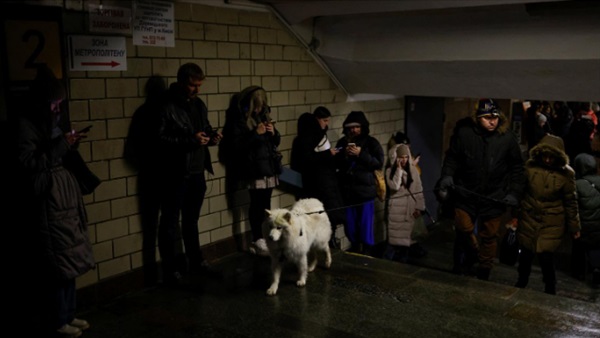Kyiv city lights back on for millions after Russian attack on power infrastructure

Power was restored to nine million Ukrainians after Russian strikes targeted energy infrastructure, President Zelensky claimed.
A wave of Russian missile attacks plunged the Ukrainian capital into the cold and dark on Friday, forcing people to shelter in metro stations as temperatures dropped. Heating was switched back on in Kyiv yesterday, officials said.
Zelensky warned, however, that there were continuing problems across the country with heat and water supplies, as well as “large-scale outages” in many regions. Ukraine accuses Moscow of a campaign of “energy terror” aimed at destroying public morale. Western officials say the strikes are a war crime.
Moscow argued that its attacks on Ukraine’s energy infrastructure were aimed at preventing western countries from supplying weapons to Kyiv. President Putin admitted this month, however, that the strikes were revenge for a huge blast that damaged a Kremlin-built bridge to Russian-occupied Crimea in October. Ukraine celebrated the explosion but did not claim responsibility.
Putin met his senior commanders over the weekend to discuss the war as Nato warned that Russia was preparing for a protracted conflict. “They are mobilising more forces, they are willing to suffer a lot of casualties, they are trying to get access to more weapons and ammunition,” Jens Stoltenberg, the head of the western military alliance, said.
Despite hardships, Ukrainians are determined to celebrate the holiday season. On Saturday, officials in Kyiv turned on the lights on a festive tree in the centre of the city. The illuminations are powered by a generator. In Kharkiv, which has suffered waves of Russian missile attacks, the authorities have put a tree in a central metro station that has doubled as a bomb shelter.
“We can’t allow Putin to steal Christmas,” Vitali Klitschko, the mayor of Kyiv, said. Christmas is celebrated in Ukraine by Orthodox Christians on January 7. New Year’s Eve is the main holiday for most people, however.





